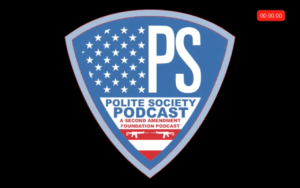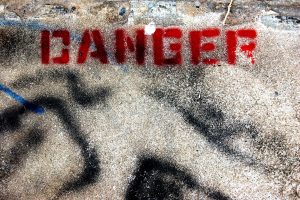You can find our response to the Armed Citizens Legal Defense Network (ACLDN) attorney question of the month below.
This month’s question concerns witnesses at the scene of a defense shooting and comes to us from those involved in armed security for churches, although the question has broader implications.
Police officers involved in shootings are rightly advised to wait for 48 to 72 hours before making a statement to investigators. This is well established. Armed citizens are similarly advised for the same sound reasons, yet one rarely hears the same principle of waiting 48-72 hours before making a statement applied to witnesses closely involved in a defense shooting.
We are very interested in how you would answer the following questions:
- If a Network member uses deadly force in defense in the presence of family, close associates, or in a workplace or church, what concerns would you as the member’s attorney have about accuracy of witness statements given by those in close proximity to the incident?
- If witnessed by family, co-workers or church members or others who are present during a defense shooting, would you recommend witnesses request time to gather their wits before giving a witness statement? How can the witnesses be advised of that protection without impeding investigation of the incident?
- In a related matter, it is well-established that the person using force in self defense should have an attorney present when making a statement. May a spouse or child of a self defense shooter be attended by legal counsel while giving their statement to law enforcement?
We have significant concerns regarding the accuracy of witness statements provided immediately by witnesses in close proximity to a self-defense encounter involving deadly force. One must assume that witnesses near a deadly force encounter may have reactions to the deadly force incident much like an individual who actually was compelled to use deadly force. Unless a witness has experienced extensive stress inoculation, the witness is likely to react to the ‘fight or flight” circumstance of a deadly encounter in physiological and psychological ways that can create inaccurate perceptions of an occurrence. This reaction to a high-stress encounter takes the form of an “adrenaline dump” that can include associated symptoms such as auditory exclusion, tunnel vision, heightened visual clarity, a sense that time is in slow motion or even happening faster than normal. Perhaps more importantly, a witness may experience memory distortion that would involve remembering things out of sequence or even innocently reconstruct an event with things that did not happen.
These are only some of the possible reactions to a fight or flight encounter a witness might experience. These natural reactions are understandable and innocent in nature, but they could produce factually inaccurate statements that could be used against an innocent person who was compelled to use deadly force in a defensive encounter. These are also all reactions that support the conclusion that eyewitness testimony is not necessarily reliable evidence. It also explains why it is not a good idea to immediately discuss such things as distances, number of shots, and timing.
To combat the potential reactions that a witness may have to a “fight or flight” encounter, it would be advisable to take some time to gather his or her wits. This could take the form of undergoing at least one sleep cycle before giving a statement. Preferably, wait 48 to 72 hours before giving a statement. It also might be a good idea for the witness to write down his or her memory of the event on paper for an attorney that is representing the witness. This will protect the document under attorney-client privilege and allow the attorney to help the witness separate fact from assumption. There is no question that an attorney for the witness can be present for any statement the witness gives to law enforcement. Generally, no statement has to be given to law enforcement at all, and there should be no issue with having counsel present when a statement is given.
With respect to conveying the fact that a witness can and should take time to gather their wits before giving a statement, it would be best to educate and train spouses, family members and close associates regarding what to expect and how to react to a deadly force encounter well in advance of any potential encounter. In other words, now would be a good time to have that conversation – not after an encounter has occurred. It would be concerning to wait until after the self-defense encounter to communicate to a witness that they should not give a full statement until some time has passed. This approach has the risk of producing allegations of improper conduct that could be used against you by the police or prosecutor despite honest intentions.
Although the likelihood of a deadly force encounter is very low, the magnitude of harm, in terms of legal jeopardy, is so great that we want to be prepared. That preparation includes understanding the immediate aftermath of a deadly force encounter and how to react so that an accurate history of the event can be documented and innocent defenders remain free. That preparation is appropriate for the responsibly armed citizen, and his or her spouse and family members. In an ideal world, the witnesses should all be prepared to point out evidence and witnesses that might otherwise disappear and could provide exculpatory evidence. A discussion of the types of information an ideal witness should be prepared to provide would take up too much room for this article. We would suggest referring to the ACLDN DVDs you were provided when you joined the network regarding issues related to the aftermath of a self-defense encounter.





